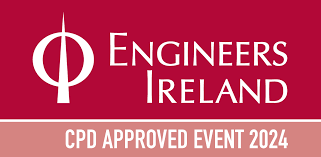
Note: Grant funding comes from Skillnet Ireland through the Irish National Training fund, and, as a result, is ONLY available to residents of the Republic of Ireland who work as a sole trader, or for a private or semi-state commercial company registered in ROI. If you are not eligible for the discount, you will still have the option to enrol by paying the full course fee. Please read Eligibility Criteria.
*** Applications are not open yet. Enquire Now to register interest for the next semester. ***
This programme introduces the learner to the dynamic behaviours and control mechanisms essential for power system networks. The course material is a mix of electrical engineering, system dynamics, and sustainable energy management. Students will examine the principles of synchronous machine dynamics, transformer control, and power electronics. The course covers the industry norms used for control strategies for various components, including synchronous machines, transformers, and induction machines, appreciating their dynamic and practical applications. A particular emphasis is given to the role of Flexible AC Transmission Systems (FACTS) and Voltage Source Converters (VSC) in modern power grids. This module will also encourage students to explore the technical and ethical implications of advanced control techniques in power systems, considering their broader impact on grid stability and renewable energy integration.
On successful completion of this module, the learner will be able to:
- Understand the dynamic models and control mechanisms of synchronous machines, transformers, and power electronic devices, including their primary and secondary controls.
- Evaluate and analyse control systems for high voltage transmission, including under-load tap-changers, phase shifters, and FACTS devices.
- Apply theoretical knowledge to practical examples using numerical simulations, focusing on real-world power system scenarios.
- Understand and explain the control of distributed energy sources like wind turbines and photovoltaic panels, emphasizing MPPT, voltage control, and frequency control.
- Assess the ethical and sustainability implications of advanced control techniques in power systems, considering their broader impact on grid stability and renewable energy integration.
Applicants should possess a Level 8 qualification with a minimum of a H2.2 in a related field such as Electrical Engineering, Electronic Engineering or similar. Recognition of Prior Learning (RPL) of applicants whose experience in Electronic, Electrical Engineering or equivalent may qualify for entry to this Level 9 course in the absence of evidence of Level 8 qualifications
International applicants must have a minimum IELTS score of 6.0 overall (with a score of 5.5 in each component) or equivalent .
Two lab practical/site visit. These are delivered on two Saturdays at ATU’s Letterkenny campus, with mandatory attendance required.
One Weekly Online Lecture: Delivered live and recorded.
One Weekly Online Tutorial: Delivered live and recorded.
Weekly Independent Learning: 5 hours
100% Continuous Assessment







